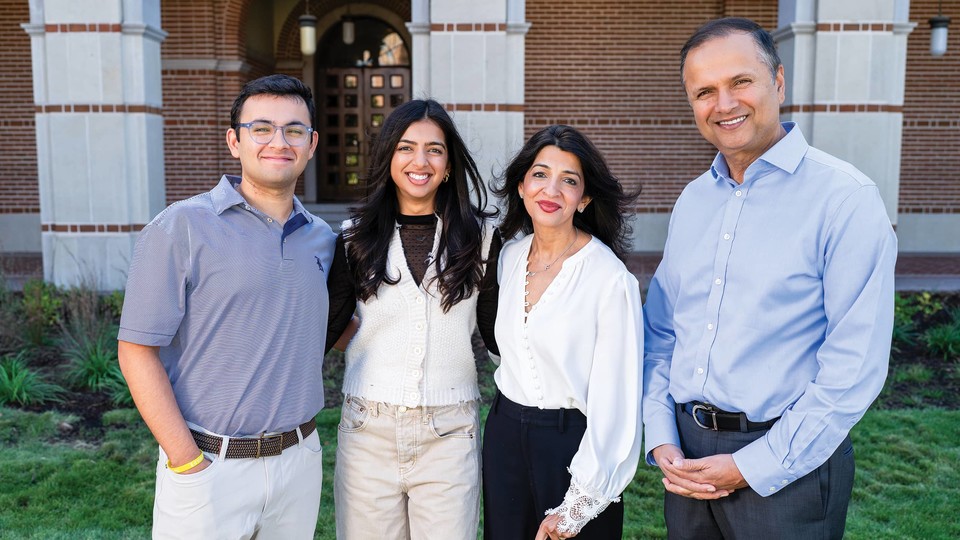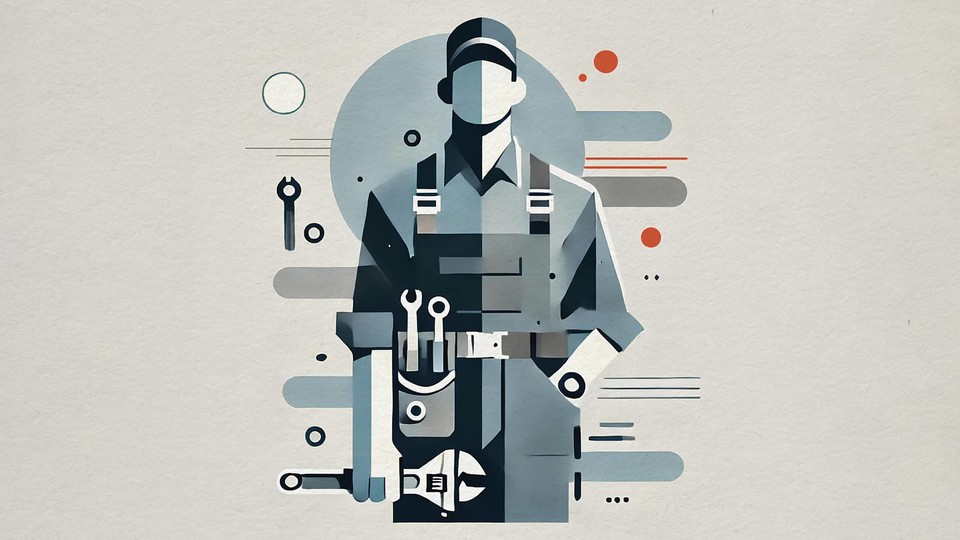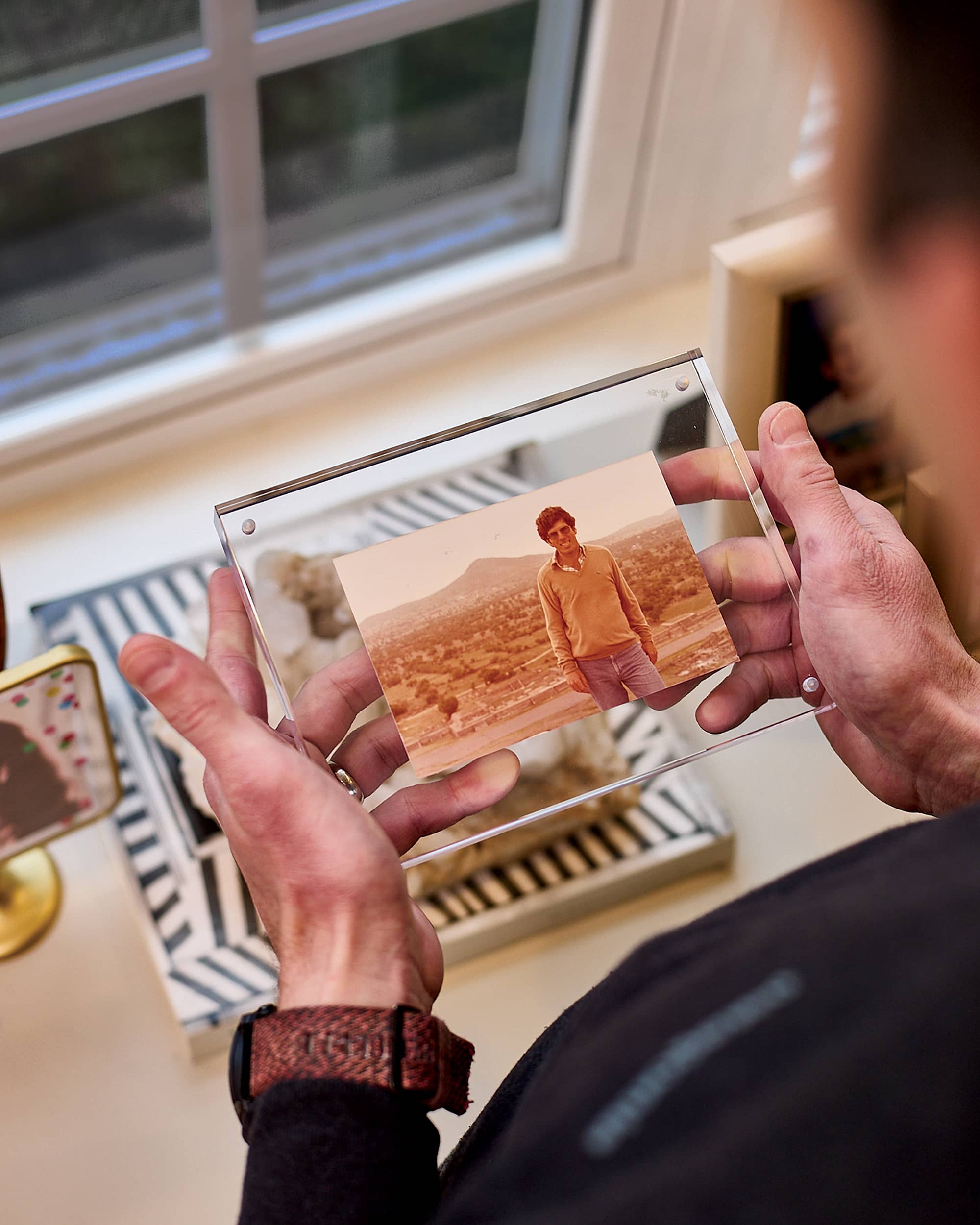
Fighting Fate
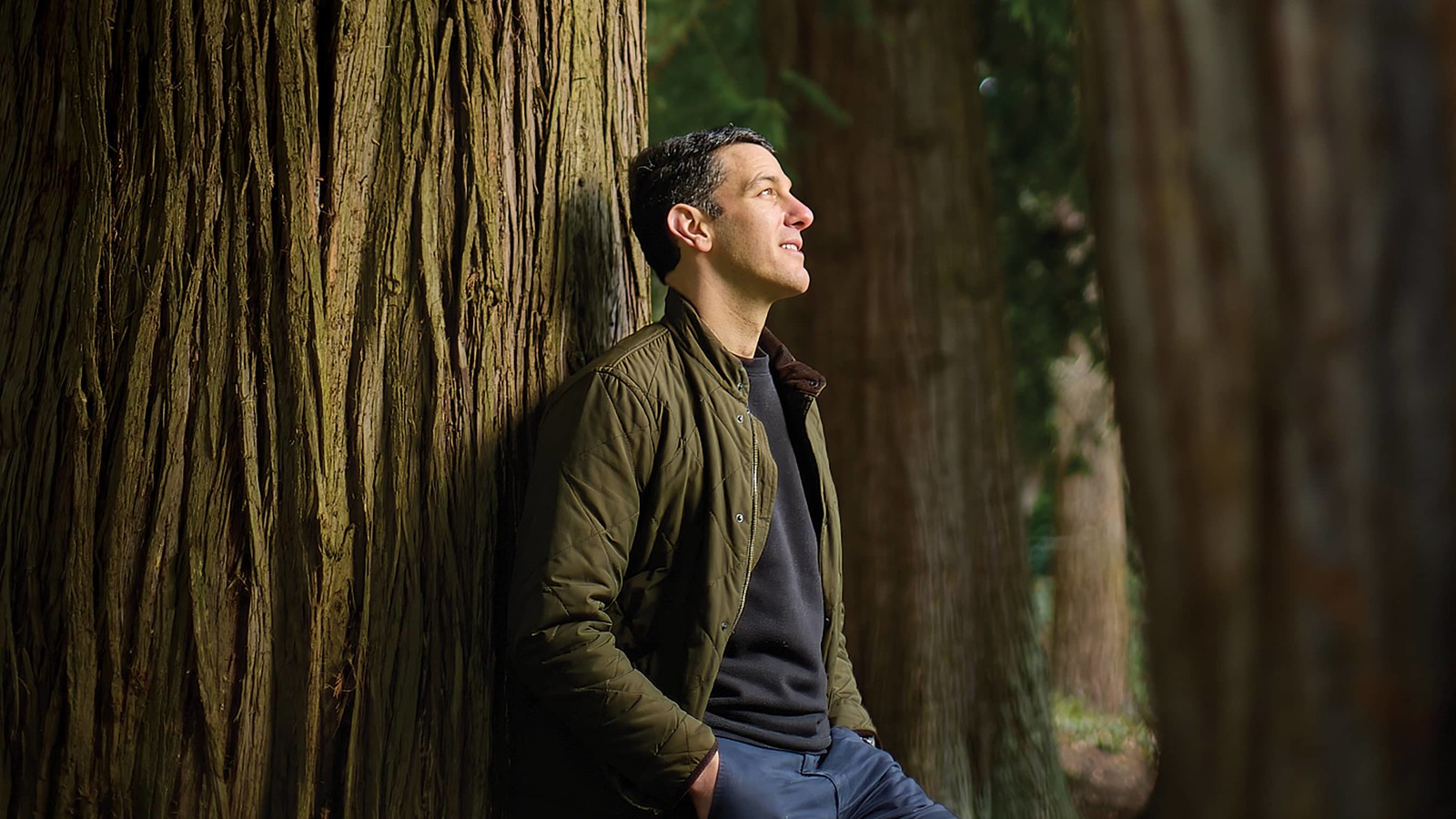
Because of a genetic mutation he’s inherited, Daniel Barvin ’18 faces the possibility of developing frontotemporal dementia or ALS. His future is uncertain — but rather than let the risk of disease overshadow his life, he has dedicated himself to driving innovation and creating a healthier future for people like him.
It was supposed to be a celebration. Buoyed by his quick recovery from heart surgery at age 45, Mark Barvin felt well enough to enjoy a dinner at his favorite restaurant with his young sons, Daniel and Josh. Their meal began smoothly — but as they ate, Mark became nauseated and physically ill. The brothers feared postsurgical complications, but the argument with their father afterward was what really stunned them. In a baffling turn, their dad became fixated on the food — and refused to leave until his sons had packed up every last bit to bring home.
At the time, Daniel Barvin was just a middle schooler. And the dad he knew was a towering figure — 6-foot-6-inches, about 250 pounds — and a gregarious, outgoing man who lit up any conversation. His behavior at the restaurant was uncharacteristic for their father and confusing and scary for the boys.
That night marked the beginning of a profound transformation — the start of what would be a 15-year decline. Although Mark’s heart had been repaired, his mind was beginning to fail. Over the years that followed, Barvin watched as his dad’s mental faculties diminished — along with his social awareness, inhibition and the ability to plan and process. And eventually, he came to understand these changes offered a glimpse of his own possible future.

Given Barvin’s family history — losing his father, grandfather, an aunt and an uncle to neurodegenerative diseases — he decided to confront the unknown. Seeking answers, he signed up for a longitudinal research study in Boston in 2018. The deaths in his family pointed to a likely culprit: the C9orf72 gene expansion, a genetic variant that puts carriers at high risk of developing frontotemporal dementia (FTD) or amyotrophic lateral sclerosis (ALS), or possibly both. If Barvin carried that mutation, he certainly wanted to know, and he wanted to ensure his father’s fate wouldn’t repeat as his own. His goal was to use scientific breakthroughs in genetic testing to take power over his future.
On his third visit to Massachusetts General Hospital in Boston, his wife, Kaori Matsui (Rice B.Mus. ’14, M.Mus.’16, Shepherd School of Music) came along to get the results. “The genetic counselor said, ‘I’m so sorry to tell you this, but you are a genetic carrier,’” recalls Barvin. He was 29 at the time. His family members had started to show symptoms of decline in their mid-40s.
Matsui was devastated. They had gotten married just six months prior — and there had already been talk of children. A genetic diagnosis meant that her husband’s future might be cut short, like his father’s. It also meant he had a 50% chance of passing the mutation on to their future children.
Barvin, on the other hand, seemed to take the news a little easier. “I’d watched my father’s generation be decimated by these diseases, and I felt powerless,” says Barvin. Now, though, he had some answers and with answers came empowerment.
Then came the big question: What now? With no path for an asymptomatic carrier, caught in a limbo between health and an inevitable decline, Barvin found himself adrift. When he tried to receive clinical care, he was turned away. “They said, ‘You don’t have ALS. Come back when you do.’”
Worse, his proactive search for medical guidance had unintended consequences. A later attempt to secure private health insurance was denied — his genetic status was now a red flag in the system.
Although the Ice Bucket Challenge had generated buzz about ALS just four years earlier, the genetic ALS and FTD communities had few to no resources. “No one was speaking out,” says Barvin. But he soon learned he was far from alone. “We’ve learned that there are hundreds of thousands of people who either carry or are at risk of carrying one of these mutations.”
For years, he had lived under the shadow of his family's illness, dreading an uncertain fate. But now, he saw an opportunity: He could stop the mutation’s journey through his family line. And he could ensure that others didn’t have to navigate this journey alone.
“I had felt alone for so long,” he says. “But finally, I didn’t have to be afraid of the unknown. I could be empowered by the path before me.”
Dr. Stanley Appel, a neurologist at Houston Methodist, has spent a career in medicine working to discover insights to treat several neurodegenerative disorders by focusing on Tregs, or regulatory T-cells, cells responsible for immune responses in the body. What he saw in his studies holds great promise for those suffering from neurodegenerative, autoimmune and metabolic diseases.
As Appel was researching and refining his theory around Treg modalities, Barvin was rethinking his career. He had spent years in the oil and gas industry, then moved to wealth management. He’d found success, but not fulfillment. His family’s battle with neurodegenerative disease, his Rice MBA and his genetic diagnosis all led him toward a new mission. He founded Genetic ALS & FTD: End the Legacy, a nonprofit organization dedicated to education, research participation and patient advocacy. Together with other patient advocates, he connected families to studies, pushed for systemic change and amplified the voices of those carrying a genetic fate they didn’t choose.
But advocacy didn’t pay the bills. And now, with a growing family — conceived through IVF to ensure Barvin and Matsui’s children wouldn’t inherit C9orf72 — he needed a career that aligned with his purpose.
That’s when the call came.
Howard Berman, who had attended Rice Business and earned his Ph.D. from Cornell, had been watching Barvin’s work. He had just licensed Appel’s Treg therapy and needed someone to help bring it to market. “He said, ‘Daniel, will you help me commercialize Dr. Appel’s Treg therapy for ALS?’”
The answer was easy.
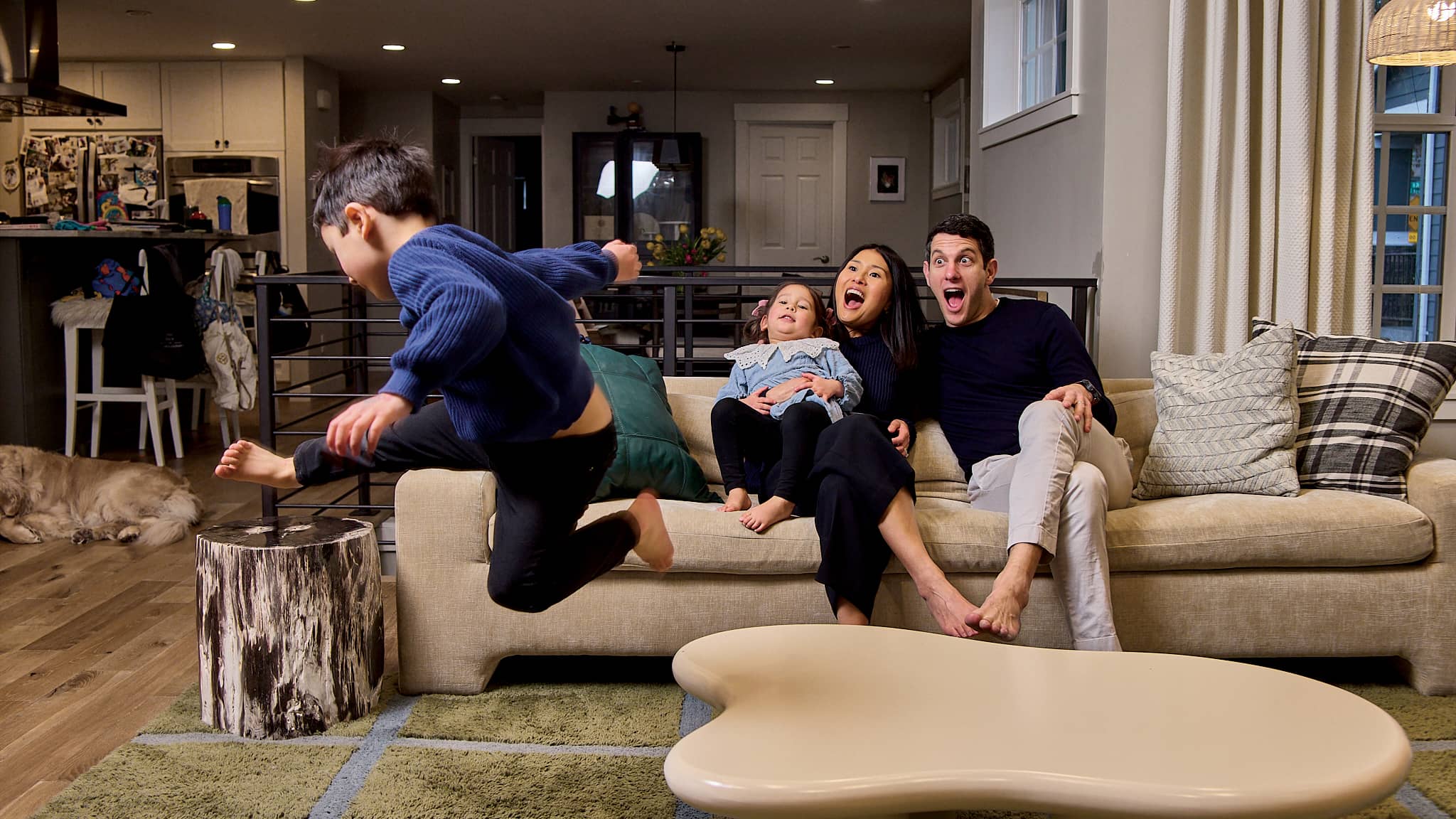
In 2021, Coya Therapeutics was born, and the race to bring progress to patients and families had begun. Barvin was Coya’s first employee. His title: vice president of operations and patient advocacy.
At its core, neurodegenerative disease is a wildfire of inflammation. In a healthy body, inflammation is a natural response — a defense mechanism against injury or illness. But in diseases like ALS and Alzheimer’s, the fire never stops. It rages through motor neurons unchecked, destroying everything in its path.
For decades, treatments focused on slowing neuron death. Appel, however, had a different goal: to restore balance. Coya’s therapy combines two approaches — one to boost Treg function and another to reduce inflammation — rekindling the body’s ability to regulate itself.
The science is promising. The stakes are enormous.
Coya Therapeutics continues to make strides in the fight against neurodegenerative diseases. The company plans to advance its investigational ALS therapeutic in 2025, with a phase two study set to begin this year and topline results expected in 2026. Coya is also anticipating data for its FTD program and exploring partnership opportunities for its Alzheimer’s disease program.
“Neurodegenerative diseases are unique from other devastating cases,” says Coya CEO Arun Swaminathan.
“It’s not just the emotional toll of a diagnosis; families face very real sacrifices, like sacrificing jobs or personal interests to provide care."
"You watch the patient change — they don’t recognize you, and you hardly recognize them. I’ve worked on oncology, cardiovascular and rheumatoid arthritis products, but neuroscience attracted me because there are so few options available. It’s an area in which, as an industry, we’ve hardly made a dent.”
While many view a cure as the ultimate hope, Swaminathan understands that progress lies in stabilizing disease progression and enhancing patient well-being. “A cure remains an aspirational goal,” he explains, “but our current efforts are about chipping away at the barriers these conditions impose — making them manageable and ensuring people can live empowered, meaningful lives. There’s still much work to be done, and every improvement is a victory.”
Indeed, for Barvin, every advancement is personal. He has undergone seven spinal taps to contribute data to the Dominant Inherited ALS Study (DIALS), which tracks gene carriers like him to identify early biomarkers of disease. Each procedure inches researchers closer to a breakthrough. In the meantime, Barvin’s nonprofit, End the Legacy, has opened the first clinical care center dedicated to asymptomatic patients at risk for — or patients already suffering from — FTD and ALS, in partnership with ALS Hope Foundation and Temple University’s neurology department.
Barvin doesn’t know how much time he has before symptoms appear. But he does know this: The future is not yet written. And he refuses to let fear dictate his story. In fact, he’s sharing his story everywhere he can so that others know there’s hope. Barvin and his family recently filmed a documentary, “Come Back When You’re Sick,” which will be out this year.
“Every step we take brings us closer to a brighter future for people with neurodegenerative diseases,” he says. “I may not be able to change my genetics. But I can shape what happens next.”
Get to Know Daniel Barvin
Barvin opens up about his personal and professional journeys on the Owl Have You Know podcast. You can watch the video recording of his podcast episode below or listen to the podcast episode wherever you listen to your favorite podcasts.
